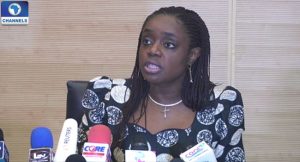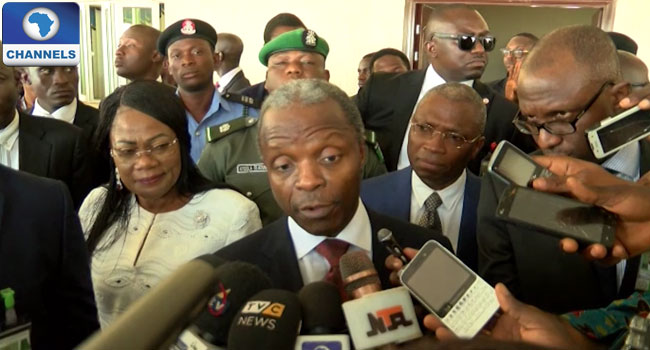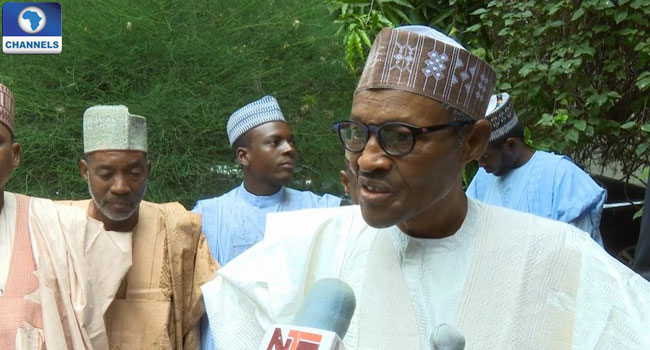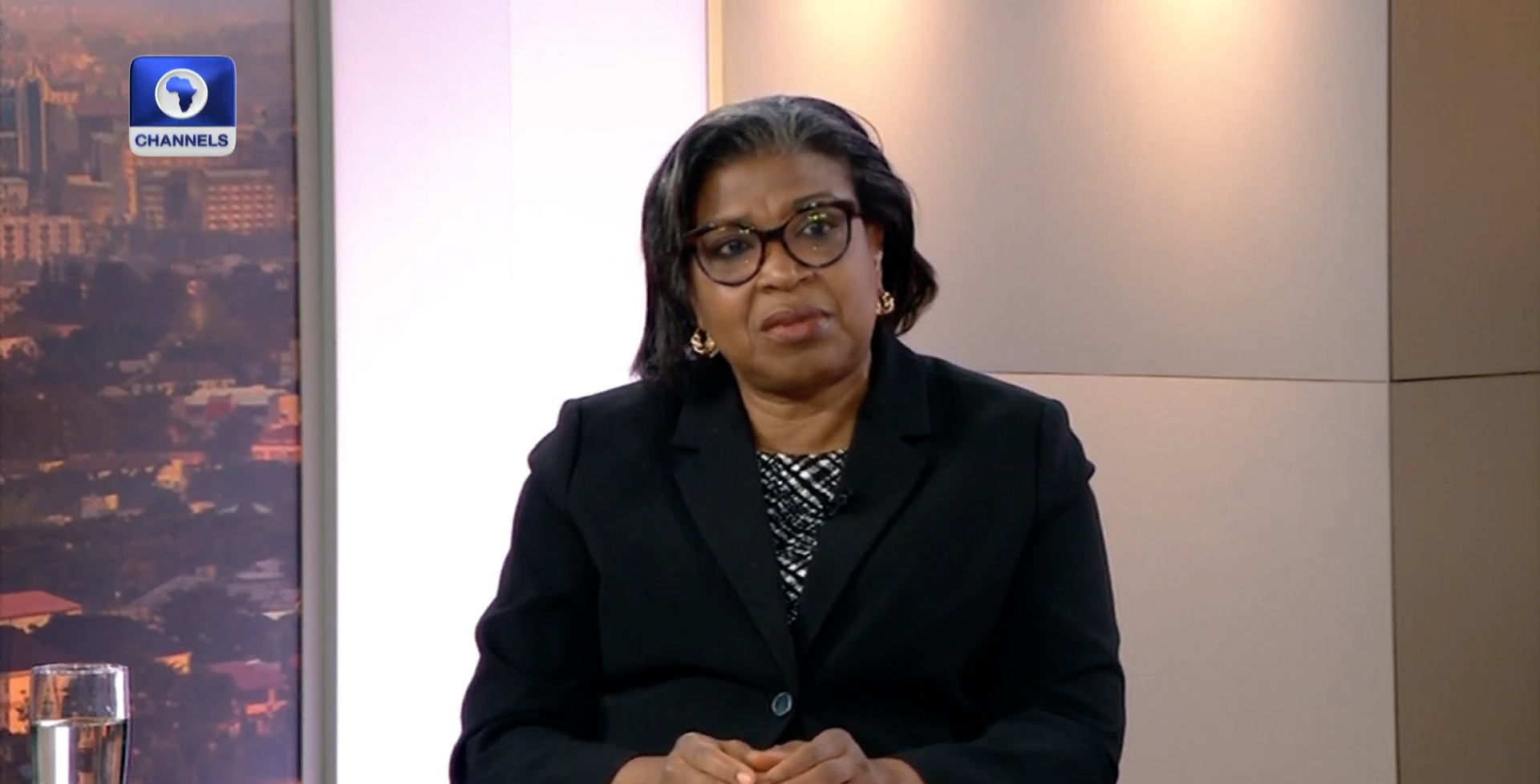
The Minister of Finance, Mrs Kemi Adeosun, told reporters in Abuja on Friday that the additional funding, on top of the initial 420 billion Naira released in May, was primarily for capital expenditure projects that would also involve support from local banks and transaction partners.
“We are raising money. As you know the Euro-bond capital raise is on.
“We are about to appoint advisers so we we will be raising additional $1 billion.
“Two weeks ago we approved the external borrowing plan and that was very important,” the Minister said.
Plans To Borrow
According to her, the government plans to borrow a total of 1.8 trillion Naira at home and abroad to fund an expected budget deficit of 2.2 trillion Naira.
In an attempt to reviving the crashed economy, the government has approved borrowing from the African Development Bank, China, Japan and World Bank with rates of 1.25 per cent and a 20-year maturity.
“When we said we will borrow, we said we will borrow the cheapest money first.
“We have approvals in that plan from the World Bank, ADB, with interest rates as low as 1.5 per cent and tenures as low as forty years to intervene in some specific areas which include agriculture, education, health, rebuilding of the northeast and of course the railway project that are very key to what we are doing,” Mrs Adeosun explained.
Bureaucracy in the civil service is an issue that critics have asked the government to address to hasting the release of funds that would provide needed infrastructures and add impetus to the economy to cushion the effect of the recession on Nigerians.
The Minister also pointed out that the issue with fiscal initiatives was that “there is always a lag”.
“There is always a time difference between when you release money and when it has an effect. We are trying to work on how we can shorten that lag,” the Minister stated.
She highlighted that some of the delays were in the procurement process, which, according to her, were being looked into, with the government doing its best to speed up the process.
Another area that the government is looking to push funds to, according to the Minister, is the Social Intervention Programme, which she said would receive 60 billion Naira. “That is very important in terms of putting money into peoples pocket,” she stressed.
She had on August 19 said that the government would allocate 60 billion Naira ($180 million) more spending on capital projects, as part of the 2016 budget.
She told reporters that the allocation was an addition to earlier releases, aimed at boosting the economy.
Mrs Adeosun said that before the allocation of the 60 billion Naira the government had spent over 400 billion Naira on capital.
Economy In Recession
Nigeria’s economy had glided into recession few weeks ago, after a report by the National Bureau of Statistics showed that the nation’s Gross Domestic Product contracted by by 2.06% in the second quarter of 2016.
According to the report, the decline has caused the Naira to get weaker while lower oil prices dragged the oil sector down.
The output shrunk by 0.36 in the first quarter.
During the quarter, nominal GDP was 2.73% higher at 23.48 million Naira at basic prices.
The oil-rich nation’s economy suffered a set-back when the price of crude oil dropped, dipping the nation’s revenue.
The situation was, however, compounded by the resurgence of militants activities in the south-south region where there nation’s wealth is.
A group that calls itself the Niger Delta Avengers have attacked different oil installations in Niger Delta, forcing some oil companies to declare force majeure.
Their activities have lowered the nation’s crude oil output by 700,000 barrels per day (bpd) to 1.56 million bpd in the last few months.
Changes Would Come
After the report of the bureau was published, the government had at different occasions reassured Nigerians that the economic recession would be short-lived.

Vice President Yemi Osinbajo last week expressed optimism that the economic recession the country is battling with would ease out soon.
He said changes would come ‘once the Federal Government is able to resolve the issues concerning the pipeline vandalism and focus on sustainable diversification policy’.
The Vice President gave the assurance while speaking to reporters at the Redeemers University in Ede, Osun State.
The current administration of the All Progressives Congress has also blamed the administration of the Peoples Democratic Party for the recession, saying that the previous administration refused to invest in infrastructure and save money for the nation when the price of crude oil was over $100 per barrel.
Promising to correct the maladministration of the past government, President Muhammadu Buhari decried what he inherited from past administrations.
He said he would correct them with the help of Nigerians.

“I want Nigerians to realise what this government inherited after 16 years of PDP [Peoples Democratic party] and eight consecutive government.
“There was no savings, no infrastructure was done, no power, no rail, no road and security. This is what the other party left for Nigerians.
“Now they have seen what we have done from Boko Haram to what we are trying to do now with the militants.
“We have identified these problems, three of them – security, economy and fighting corruption.
“You have to secure our country to efficiently manage it. You have to create jobs for our youths and then we are fighting corruption which is continuous,” President Buhari said.



